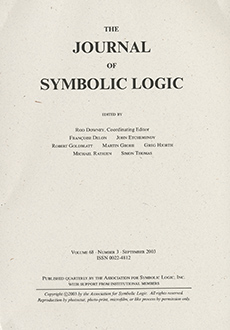Abstract
In contrast with the notion of complexity, a set $A$ is called anti-complex if the Kolmogorov complexity of the initial segments of $A$ chosen by a recursive function is always bounded by the identity function. We show that, as for complexity, the natural arena for examining anti-complexity is the weak-truth table degrees. In this context, we show the equivalence of anti-complexity and other lowness notions such as r.e. traceability or being weak truth-table reducible to a Schnorr trivial set. A set $A$ is anti-complex if and only if it is reducible to another set $B$ with tiny use, whereby we mean that the use function for reducing $A$ to $B$ can be made to grow arbitrarily slowly, as gauged by unbounded nondecreasing recursive functions. This notion of reducibility is then studied in its own right, and we also investigate its range and the range of its uniform counterpart.
Citation
Johanna N. Y. Franklin. Noam Greenberg. Frank Stephan. Guohua Wu. "Anti-complex sets and reducibilities with tiny use." J. Symbolic Logic 78 (4) 1307 - 1327, December 2013. https://doi.org/10.2178/jsl.7804170
Information





